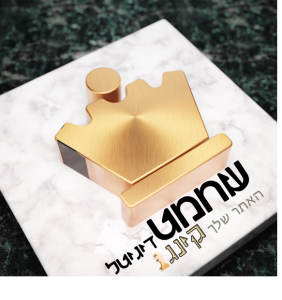Balak-Examine your motives!
Examine your motives!
One the lessons we learn from this week’s portion is the importance of being true to ourselves and examining the purity of our motives before taking an action!
At the end of Parshat Balak (Numbers 25:6-8), we are told that:
“And, one of the Bnei Yisrael came and brought unto his brethren a woman from Midian before the eyes of Moshe, and before the eyes of the Children of Israel, who were weeping before the entrance of the Tent of Meeting. And when Pinchas ben Eleazar ben Aharon HaKohen saw it, he rose up from among the congregation and took a spear in his hand. And he went after the Israelite into the inner tent, and thrust through both of them, the Israelite, and the Midianite through her belly. So the plague was stopped among the Children of Israel. And those that died in the plague were twenty four thousand.”
Thus ends the Portion of Balak.
The names of the man and woman who blatantly committed harlotry are not mentioned, perhaps because their act was so severe and unacceptable that they are not worthy of mention. However, the next Parsha, Pinchas, continues the story (Numbers 25:11-15) with:
“And Hashem spoke unto Moshe, saying, Pinchas ben Eleazar ben Aharon HaKohen hath turned My wrath away from the children of Israel, in that he was zealous for My sake among them, that I consumed not the Children of Israel in My jealousy. Therefore say, behold, I am making unto him My Covenant of peace; And he shall have it, and his offspring after him, the covenant of an everlasting priesthood; because he was zealous for his God, and made atonement for the Children of Israel. Now the name of the man of Israel that was slain, that was slain with Midianite woman, was Zimri, son of Salu, a leader of one of the clans from the tribe of Shimon. And the name of the Midianite woman slain was Kozbi daughter of Tzur; he was head over the people in one of the clans of Midian” (Numbers 25:14, 15).
We finally find out who the man and the woman were. Why does the Torah withhold the names of the sinners until the very end of the story? Until after Pinchas kills them?
By this delay in giving the reader the information regarding the names of the offenders, the Torah reveals to us a vital lesson regarding the motives of Pinchas. His motives were pure and not tainted by a personal vendetta or desire for fame.
Had the names of the offenders been mentioned as perpetrating an act of immorality in public defiance of Moshe and the People as being a Prince of Israel (Zimri, Prince of the tribe of Shimon) and Kozbi, the Midianite Princess, before Pinchas took action against them, we might have thought that Pinchas killed them because he was looking for recognition, that he desired fame and wished to become a celebrity, this being achieved by killing the famous Prince and Princess.. “If I kill these two, I will make my mark then people will realize my leadership qualities.”
Not so! When Pinchas saw what they were doing in front of Moshe and the entire People of Israel, it didn’t matter to him who they were. They needed to be killed because of the atrocious and shocking brazenness of their act. Prince or pauper, rich man, poor man, beggar man, thief, doctor, lawyer, merchant, chief, banker or cobbler, it made no difference to Pinchas. He picked up his spear because of the nature of their act, not because of who they were, not because of their stature.
That’s why the Torah doesn’t divulge their names initially. The distinction and greatness of Pinchas was that he would have done what had to be done no matter who these people were. His motive was solely to avenge God’s honor. He had no hidden motives of self-aggrandizement! Pinchas had no consideration for his own aims and advantages and because of the purity of his motives God made His covenant with Pinchas. Only then do we find out the names of Zimri and Kozbi.
We can learn from here to always check our own motives when we go to help someone or to do something important. Ask yourself, “What’s my real reason for doing this? What is my motivation?” Are our motives pure or are they tainted with self interest? Are we advancing our own concerns ? For if so, the action we wish to take may very well be improper unfitting and unworthy.

 שחמט דיגיטל
שחמט דיגיטל